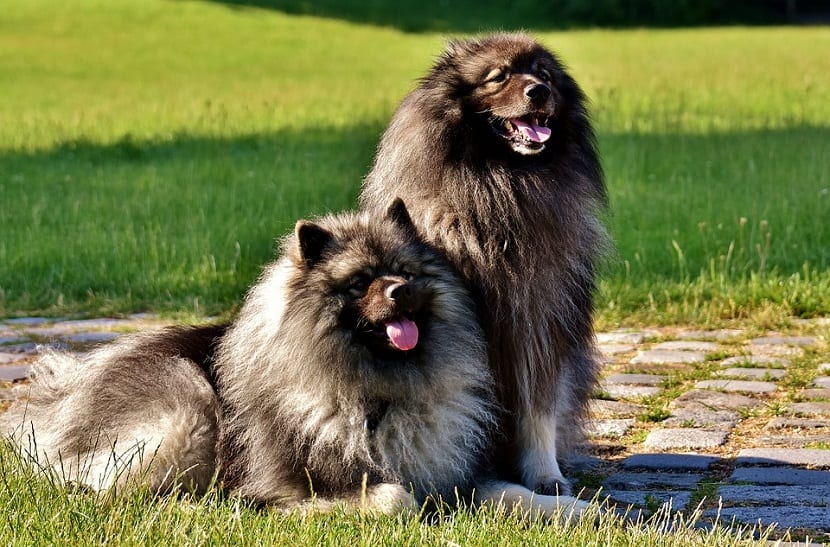
It is normal for dogs to shed some of their fur, however,how much hair they must lose to know if it is too much?
Most dogs shed their fur, especially during the hot summer months, however a dog that loses hair in large quantities could have something more serious in the background such as allergies, hormonal imbalance, mites, trauma or infections.

Although it is normal for many of these animals to shed their hair at some point in the year, if large clumps of dull fur shed easily or if the dog's coat is thinning to the point of being able to see its skin, this means that the amount of hair the dog is shedding is excessive and have a problem.
A dog that loses hair can develop a serious condition, although this does not always happen, in fact, most hair loss in dogs occurs as a result of conditions that can be treated. The most common causes are contact allergies, flea allergies, and food allergies.
In the case of allergies, hair loss is caused by wounds that the animal itself does.
Causes of coat loss in dogs
The loss of a dog's coat can occur for different causes, these being some:
Scabies
Some mites are responsible for scabies. These can damage the dog's skin and lead to hair loss. Scabies causes peeling of the skin, causing the dog to scratch excessively.
Trauma
Hair loss caused by trauma occurs more frequently and is the result of chronic dog licking on its own skin.
This condition, known as acral lick dermatitis, damages the hair follicle and leads to hair loss. Trauma can also occur as a secondary reaction to injury.
Allergies
Dogs may be allergic to certain foods, as well as fleas. Certain dog breeds are more susceptible to allergies than others, such as Golden Retrievers, Bulldogs, and Yorkshire Terriers.
Loss of coat due to allergies, causes redness on the skin, itching and the appearance of lumps in it.
Infection
Different infections can cause a dog's coat to shed, including folliculitis and cancer. In this case, it is very likely that we will notice nodules with or without pus, scaling and redness.
Hormonal imbalance
Many hormonal imbalances can cause hair in dogs to deteriorate. Thyroid disorders, pituitary dwarfism, and adrenal gland deficiency, they can cause progressive hair loss.
Treatments for hair loss in dogs
The treatment for dogs in case of partial loss of their coat will depend on the cause, so the most important thing is that we can keep this disorder under control.
Antibiotics
The vet can prescribe antibiotics to treat any infection that causes hair loss in the dog.
The vet may need to remove any associated nodules or tumors that contribute to shedding and treat the dog with antibiotics, as well as other appropriate medications for the disease.
Change the dog's diet

If the vet thinks the dog's hair loss is caused by a allergy to any food, then it will be necessary for us to eliminate the food in question from your diet. The most common food allergies in dogs include wheat, corn, soybeans, eggs, and even beef or chicken.
Undergo hormonal treatment
If the dog has a hormonal imbalance, supplements can stop coat shedding and help your dog to regenerate. Veterinarians can run tests to determine if hormone treatment will help tackle the problem.
Using hydrocortisone shampoos and sprays
You can treat excessive licking and relieve itchy skin, if we bathe the dog with a specific shampoo for dogs containing hydrocortisone.
Hydrocortisone soothes irritated skin and it can speed healing.